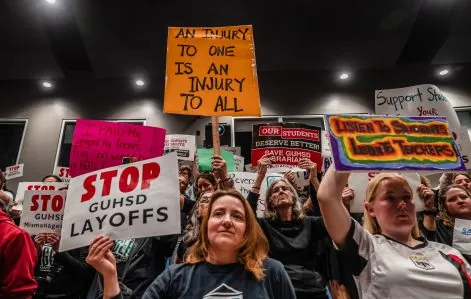If you’ve been watching the headlines, you might’ve noticed a trend that’s unsettling, especially if you care about fairness and equality at work. Across the country, some states and even federal executive orders are scaling back or outright banning Diversity, Equity, and Inclusion (DEI) programs. For many employees, especially those who are part of historically marginalized groups, this raises an important question:
What does this mean for my rights at work?
Here’s the good news: if you work in California, your rights are still very much protected. California has some of the strongest workplace discrimination laws in the country, and these protections remain in place regardless of what’s happening at the federal level.
Let’s break this down.
California Law vs. Federal Rollbacks
While some executive orders and state-level decisions are targeting DEI efforts, those don’t override California’s own civil rights laws. In fact, California continues to affirm its commitment to protecting workers from discrimination and harassment through several key laws.
Here are the main ones you should know:
1. The California Fair Employment and Housing Act (FEHA)
FEHA is the backbone of California’s anti-discrimination law. It makes it illegal for an employer with five or more employees to discriminate against job applicants or employees based on:
- Gender (including gender identity and expression, being non-binary, or transgender)
- Race or ethnicity
- Religion
- Disability (mental or physical)
- Pregnancy or perceived pregnancy
- Age (if you’re 40 or older)
- Sexual orientation
- Marital status
- Military or veteran status
- And more
Under FEHA, harassment based on any of these protected characteristics is also illegal—and that includes actions by supervisors, coworkers, and even third parties like clients or vendors.
2. The California Constitution
California’s constitution includes an inalienable right to pursue and obtain safety, happiness, and privacy. This broader protection often supports claims of workplace discrimination and harassment, especially when those experiences threaten someone’s sense of personal dignity or safety.
3. The Ralph Civil Rights Act and the Bane Act
While not strictly employment laws, these acts can apply when harassment or threats occur in or outside the workplace, especially if tied to someone’s race, gender, religion, or other protected identity. They help fill in the gaps where federal laws or executive orders fall short.
So… Can Employers Just Cancel DEI Programs Now?
Technically, an employer might choose to shift away from using the term “DEI” in their workplace initiatives. But what they can’t do—at least not in California—is ignore their legal obligation to provide a workplace that’s free from discrimination and harassment.
Let’s say a company decides to shut down its DEI office because of federal pressure or budget cuts. Even without a DEI program, they’re still legally required to:
- Treat employees and applicants fairly
- Investigate and respond to complaints of discrimination or harassment
- Provide reasonable accommodations for disabilities and religious practices
- Maintain anti-harassment training and policies
In short: DEI programs might be going away in some places, but the protections themselves are not. In California, the law still stands.
What If I’m Experiencing Discrimination Now?
If you’re being treated unfairly at work because of your identity—whether that’s your gender identity, race, disability, or any other protected characteristic—know this: you’re not alone, and you have options.
Start by documenting what’s happening. Keep track of dates, comments, emails, and anything else that helps paint a picture of the problem. You can also report the behavior to HR or your supervisor (unless they’re the problem—then go higher or consider outside help).
And don’t wait too long to take action. The California Civil Rights Department (CRD) enforces FEHA, but there are deadlines for filing complaints—usually within three years of the incident.
Final Thoughts
The conversation around DEI might be shifting, but your rights in California are not. No matter what your employer calls their internal programs—or whether they have them at all—they are still legally required to protect you from discrimination and harassment.
If you’re feeling unsafe, overlooked, or targeted at work, don’t second-guess yourself. Reach out. Speak up. And know that California law is still on your side.





